Abstract:
Hyperspectral image (HSI) synthesis overcomes the limitations of imaging sensors and enables low-cost acquisition of HSIs with high spatial resolution. Using RGB as a con...Show MoreMetadata
Abstract:
Hyperspectral image (HSI) synthesis overcomes the limitations of imaging sensors and enables low-cost acquisition of HSIs with high spatial resolution. Using RGB as a conditional input for hyperspectral generation is promising and valuable, as it can leverage abundant existing multispectral/RGB images without the intervention of hyperspectral sensors. However, most existing generation methods follow one-to-one mapping frameworks and ignore generation diversity. In addition, the current evaluation metrics of hyperspectral generation are based on the similarity with the reference image, which cannot reflect the diversity of the generated spectra. In this article, we propose a novel method for diverse hyperspectral remote sensing image generation based on the diffusion model. The diffusion model uses a denoising model to gradually remove noise from the normal distribution and generates the hyperspectral data step-by-step with the conditional RGB image as input. To address the high-dimensional noise prediction problem caused by a large number of bands in the HSI, we introduce a conditional vector quantized generative adversarial network (VQGAN) that maps the high-dimensional hyperspectral data into a low-dimensional latent space and conduct the diffusion process in the latent space. The latent-diffusion process makes the diffusion process faster and more stable. The conditional VQGAN decodes HSIs from the latent code generated by diffusion, with the conditional RGB image as the input, which restricts the diversity to a specific object distribution. We also designed two new metrics to evaluate the generation spectral diversity (SD). Experiments on the IEEE grss_dfc_2018 dataset demonstrate that our method can synthesize highly diverse hyperspectral data. In addition, the rationality of the proposed metrics is also verified.
Published in: IEEE Transactions on Geoscience and Remote Sensing ( Volume: 61)
Funding Agency:
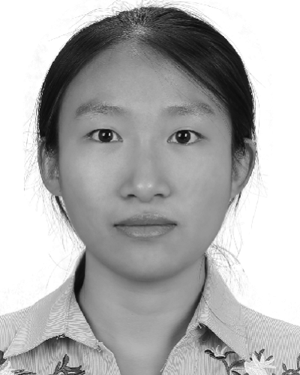
Image Processing Center, School of Astronautics, the State Key Laboratory of Virtual Reality Technology and Systems, Shen Yuan Honors College, Beihang University, Beijing, China
Shanghai Artificial Intelligence Laboratory, Shanghai, China
Liqin Liu received the B.S. degree from Beihang University, Beijing, China, in 2018, where she is currently pursuing the Ph.D. degree with the Image Processing Center, School of Astronautics.
Her research interests include hyperspectral image processing, machine learning, and deep learning.
Liqin Liu received the B.S. degree from Beihang University, Beijing, China, in 2018, where she is currently pursuing the Ph.D. degree with the Image Processing Center, School of Astronautics.
Her research interests include hyperspectral image processing, machine learning, and deep learning.View more
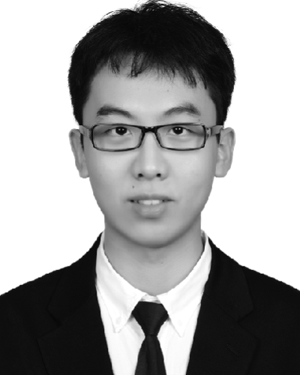
Image Processing Center, School of Astronautics, the State Key Laboratory of Virtual Reality Technology and Systems, Shen Yuan Honors College, Beihang University, Beijing, China
Shanghai Artificial Intelligence Laboratory, Shanghai, China
Bowen Chen received the B.S. degree from China University of Petroleum East China, Qingdao, Shandong, China, in 2022. He is currently pursuing the master’s degree with the Image Processing Center, School of Astronautics, Beihang University, Beijing, China.
His research interests include machine learning and pattern recognition.
Bowen Chen received the B.S. degree from China University of Petroleum East China, Qingdao, Shandong, China, in 2022. He is currently pursuing the master’s degree with the Image Processing Center, School of Astronautics, Beihang University, Beijing, China.
His research interests include machine learning and pattern recognition.View more
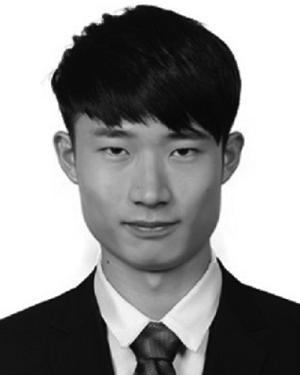
Shanghai Artificial Intelligence Laboratory, Shanghai, China
Hao Chen received the B.S. and Ph.D. degrees from the Image Processing Center, School of Astronautics, Beihang University, Beijing, China, in 2017 and 2023, respectively.
He is currently a Junior Researcher at Shanghai AI Laboratory, Shanghai, China. His research interests include geospatial machine learning, remote sensing, Earth monitoring, and prediction.
Hao Chen received the B.S. and Ph.D. degrees from the Image Processing Center, School of Astronautics, Beihang University, Beijing, China, in 2017 and 2023, respectively.
He is currently a Junior Researcher at Shanghai AI Laboratory, Shanghai, China. His research interests include geospatial machine learning, remote sensing, Earth monitoring, and prediction.View more
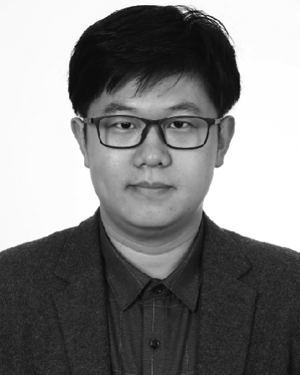
Department of Guidance, Navigation and Control, School of Astronautics, Beihang University, Beijing, China
Shanghai Artificial Intelligence Laboratory, Shanghai, China
Zhengxia Zou received the B.S. and Ph.D. degrees from the Image Processing Center, School of Astronautics, Beihang University, Beijing, China, in 2013 and 2018, respectively.
He is currently an Associate Professor at the School of Astronautics, Beihang University. From 2018 to 2021, he was a Post-Doctoral Research Fellow at the University of Michigan, Ann Arbor, MI, USA. He has authored more than 20 peer-reviewed papers in...Show More
Zhengxia Zou received the B.S. and Ph.D. degrees from the Image Processing Center, School of Astronautics, Beihang University, Beijing, China, in 2013 and 2018, respectively.
He is currently an Associate Professor at the School of Astronautics, Beihang University. From 2018 to 2021, he was a Post-Doctoral Research Fellow at the University of Michigan, Ann Arbor, MI, USA. He has authored more than 20 peer-reviewed papers in...View more
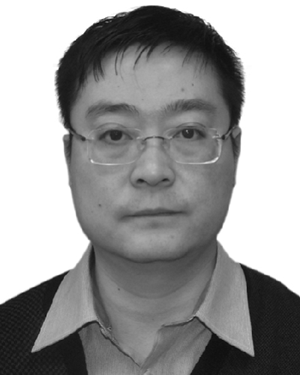
Image Processing Center, School of Astronautics, the State Key Laboratory of Virtual Reality Technology and Systems, Shen Yuan Honors College, Beihang University, Beijing, China
Shanghai Artificial Intelligence Laboratory, Shanghai, China
Zhenwei Shi (Senior Member, IEEE) received the Ph.D. degree in mathematics from the Dalian University of Technology, Dalian, China, in 2005.
He was a Post-Doctoral Researcher with the Department of Automation, Tsinghua University, Beijing, China, from 2005 to 2007. He was a Visiting Scholar with the Department of Electrical Engineering and Computer Science, Northwestern University, Evanston, IL, USA, from 2013 to 2014. He ...Show More
Zhenwei Shi (Senior Member, IEEE) received the Ph.D. degree in mathematics from the Dalian University of Technology, Dalian, China, in 2005.
He was a Post-Doctoral Researcher with the Department of Automation, Tsinghua University, Beijing, China, from 2005 to 2007. He was a Visiting Scholar with the Department of Electrical Engineering and Computer Science, Northwestern University, Evanston, IL, USA, from 2013 to 2014. He ...View more

Image Processing Center, School of Astronautics, the State Key Laboratory of Virtual Reality Technology and Systems, Shen Yuan Honors College, Beihang University, Beijing, China
Shanghai Artificial Intelligence Laboratory, Shanghai, China
Liqin Liu received the B.S. degree from Beihang University, Beijing, China, in 2018, where she is currently pursuing the Ph.D. degree with the Image Processing Center, School of Astronautics.
Her research interests include hyperspectral image processing, machine learning, and deep learning.
Liqin Liu received the B.S. degree from Beihang University, Beijing, China, in 2018, where she is currently pursuing the Ph.D. degree with the Image Processing Center, School of Astronautics.
Her research interests include hyperspectral image processing, machine learning, and deep learning.View more

Image Processing Center, School of Astronautics, the State Key Laboratory of Virtual Reality Technology and Systems, Shen Yuan Honors College, Beihang University, Beijing, China
Shanghai Artificial Intelligence Laboratory, Shanghai, China
Bowen Chen received the B.S. degree from China University of Petroleum East China, Qingdao, Shandong, China, in 2022. He is currently pursuing the master’s degree with the Image Processing Center, School of Astronautics, Beihang University, Beijing, China.
His research interests include machine learning and pattern recognition.
Bowen Chen received the B.S. degree from China University of Petroleum East China, Qingdao, Shandong, China, in 2022. He is currently pursuing the master’s degree with the Image Processing Center, School of Astronautics, Beihang University, Beijing, China.
His research interests include machine learning and pattern recognition.View more

Shanghai Artificial Intelligence Laboratory, Shanghai, China
Hao Chen received the B.S. and Ph.D. degrees from the Image Processing Center, School of Astronautics, Beihang University, Beijing, China, in 2017 and 2023, respectively.
He is currently a Junior Researcher at Shanghai AI Laboratory, Shanghai, China. His research interests include geospatial machine learning, remote sensing, Earth monitoring, and prediction.
Hao Chen received the B.S. and Ph.D. degrees from the Image Processing Center, School of Astronautics, Beihang University, Beijing, China, in 2017 and 2023, respectively.
He is currently a Junior Researcher at Shanghai AI Laboratory, Shanghai, China. His research interests include geospatial machine learning, remote sensing, Earth monitoring, and prediction.View more

Department of Guidance, Navigation and Control, School of Astronautics, Beihang University, Beijing, China
Shanghai Artificial Intelligence Laboratory, Shanghai, China
Zhengxia Zou received the B.S. and Ph.D. degrees from the Image Processing Center, School of Astronautics, Beihang University, Beijing, China, in 2013 and 2018, respectively.
He is currently an Associate Professor at the School of Astronautics, Beihang University. From 2018 to 2021, he was a Post-Doctoral Research Fellow at the University of Michigan, Ann Arbor, MI, USA. He has authored more than 20 peer-reviewed papers in top-tier journals and conferences including IEEE Transactions on Pattern Analysis and Machine Intelligence, IEEE Transactions on Image Processing, IEEE Transactions on Geoscience and Remote Sensing, IEEE Computer Vision and Pattern Recognition Conference (CVPR), IEEE International Conference on Computer Vision (ICCV), and the Association for the Advancement of Artificial Intelligence (AAAI). His research has been featured in more than 30 global tech media outlets and adopted by multiple application platforms with over 50 million users worldwide. His research interests include computer vision and related problems in remote sensing and autonomous driving. His personal website is https://zhengxiazou.github.io/.
Zhengxia Zou received the B.S. and Ph.D. degrees from the Image Processing Center, School of Astronautics, Beihang University, Beijing, China, in 2013 and 2018, respectively.
He is currently an Associate Professor at the School of Astronautics, Beihang University. From 2018 to 2021, he was a Post-Doctoral Research Fellow at the University of Michigan, Ann Arbor, MI, USA. He has authored more than 20 peer-reviewed papers in top-tier journals and conferences including IEEE Transactions on Pattern Analysis and Machine Intelligence, IEEE Transactions on Image Processing, IEEE Transactions on Geoscience and Remote Sensing, IEEE Computer Vision and Pattern Recognition Conference (CVPR), IEEE International Conference on Computer Vision (ICCV), and the Association for the Advancement of Artificial Intelligence (AAAI). His research has been featured in more than 30 global tech media outlets and adopted by multiple application platforms with over 50 million users worldwide. His research interests include computer vision and related problems in remote sensing and autonomous driving. His personal website is https://zhengxiazou.github.io/.View more

Image Processing Center, School of Astronautics, the State Key Laboratory of Virtual Reality Technology and Systems, Shen Yuan Honors College, Beihang University, Beijing, China
Shanghai Artificial Intelligence Laboratory, Shanghai, China
Zhenwei Shi (Senior Member, IEEE) received the Ph.D. degree in mathematics from the Dalian University of Technology, Dalian, China, in 2005.
He was a Post-Doctoral Researcher with the Department of Automation, Tsinghua University, Beijing, China, from 2005 to 2007. He was a Visiting Scholar with the Department of Electrical Engineering and Computer Science, Northwestern University, Evanston, IL, USA, from 2013 to 2014. He is currently a Professor and the Dean of the Image Processing Center, School of Astronautics, Beihang University, Beijing. He has authored or coauthored over 200 scientific articles in refereed journals and proceedings, including IEEE Transactions on Pattern Analysis and Machine Intelligence, the IEEE Transactions on Image Processing, the IEEE Transactions on Geoscience and Remote Sensing, the IEEE Geoscience and Remote Sensing Letters, the IEEE Conference on Computer Vision and Pattern Recognition (CVPR) and the IEEE International Conference on Computer Vision (ICCV). His research interests include remote sensing image processing and analysis, computer vision, pattern recognition, and machine learning. His personal website is https://levir.buaa.edu.cn/.
Dr. Shi serves as an Editor for the Pattern Recognition, the ISPRS Journal of Photogrammetry and Remote Sensing, and the Infrared Physics and Technology.
Zhenwei Shi (Senior Member, IEEE) received the Ph.D. degree in mathematics from the Dalian University of Technology, Dalian, China, in 2005.
He was a Post-Doctoral Researcher with the Department of Automation, Tsinghua University, Beijing, China, from 2005 to 2007. He was a Visiting Scholar with the Department of Electrical Engineering and Computer Science, Northwestern University, Evanston, IL, USA, from 2013 to 2014. He is currently a Professor and the Dean of the Image Processing Center, School of Astronautics, Beihang University, Beijing. He has authored or coauthored over 200 scientific articles in refereed journals and proceedings, including IEEE Transactions on Pattern Analysis and Machine Intelligence, the IEEE Transactions on Image Processing, the IEEE Transactions on Geoscience and Remote Sensing, the IEEE Geoscience and Remote Sensing Letters, the IEEE Conference on Computer Vision and Pattern Recognition (CVPR) and the IEEE International Conference on Computer Vision (ICCV). His research interests include remote sensing image processing and analysis, computer vision, pattern recognition, and machine learning. His personal website is https://levir.buaa.edu.cn/.
Dr. Shi serves as an Editor for the Pattern Recognition, the ISPRS Journal of Photogrammetry and Remote Sensing, and the Infrared Physics and Technology.View more


